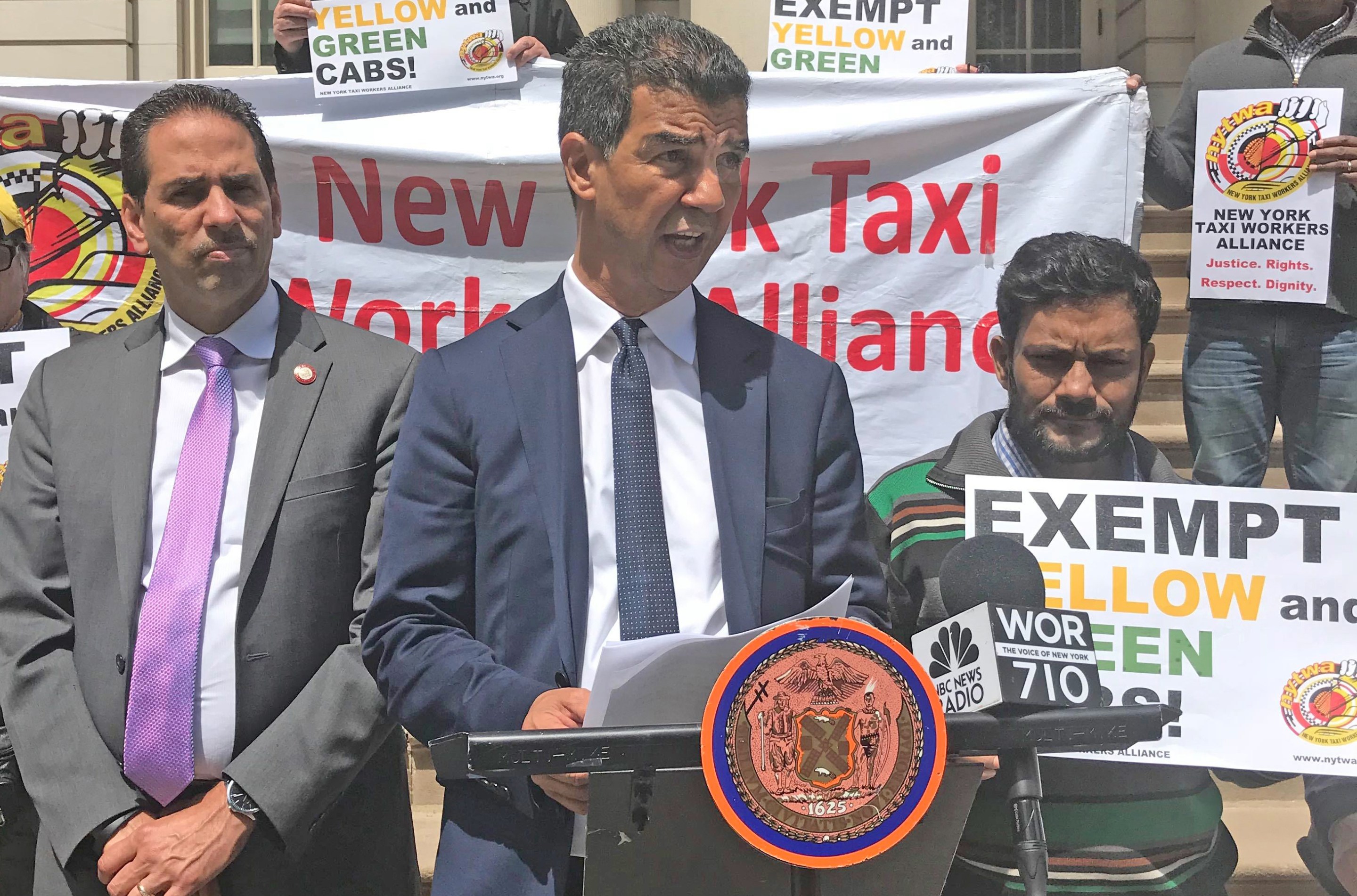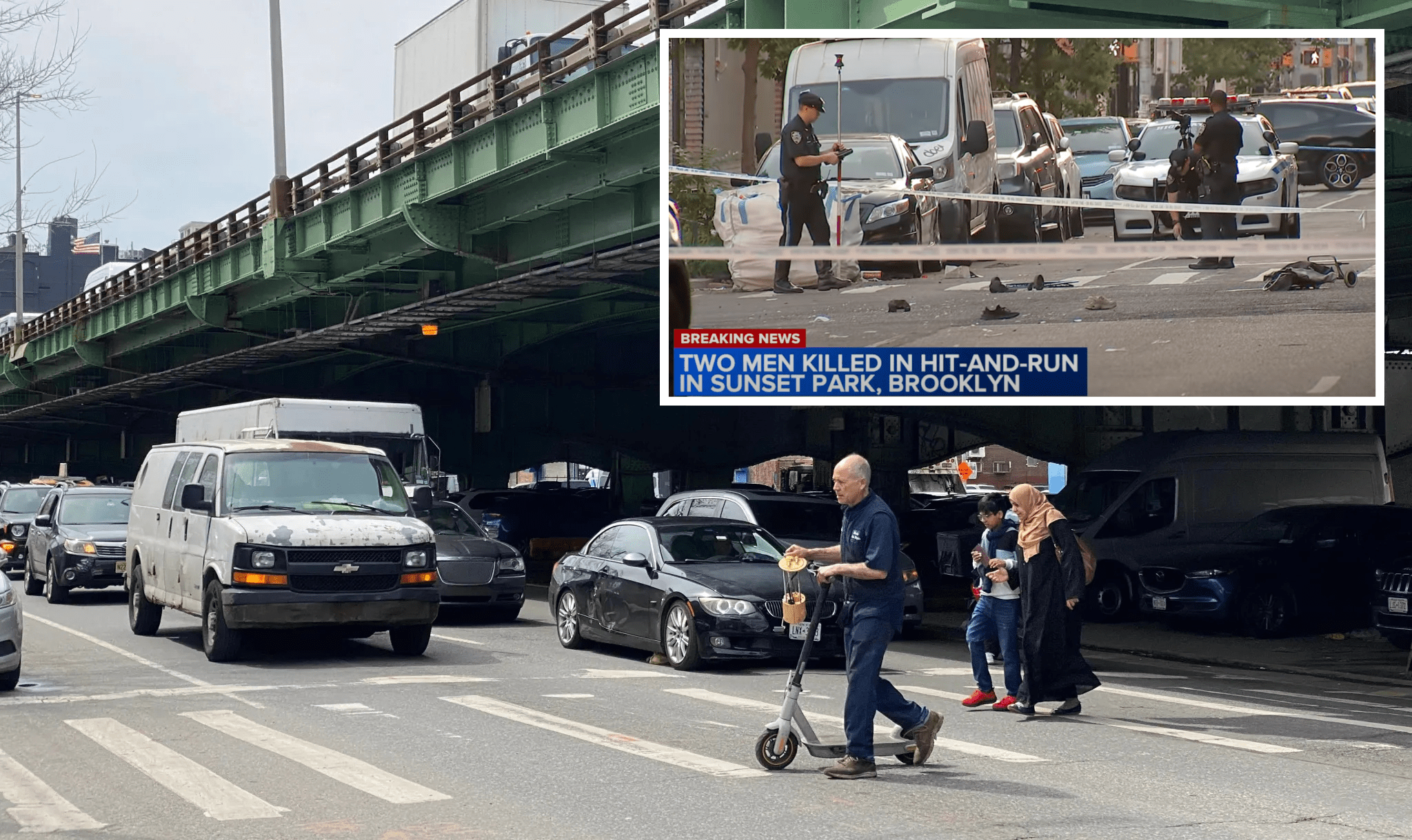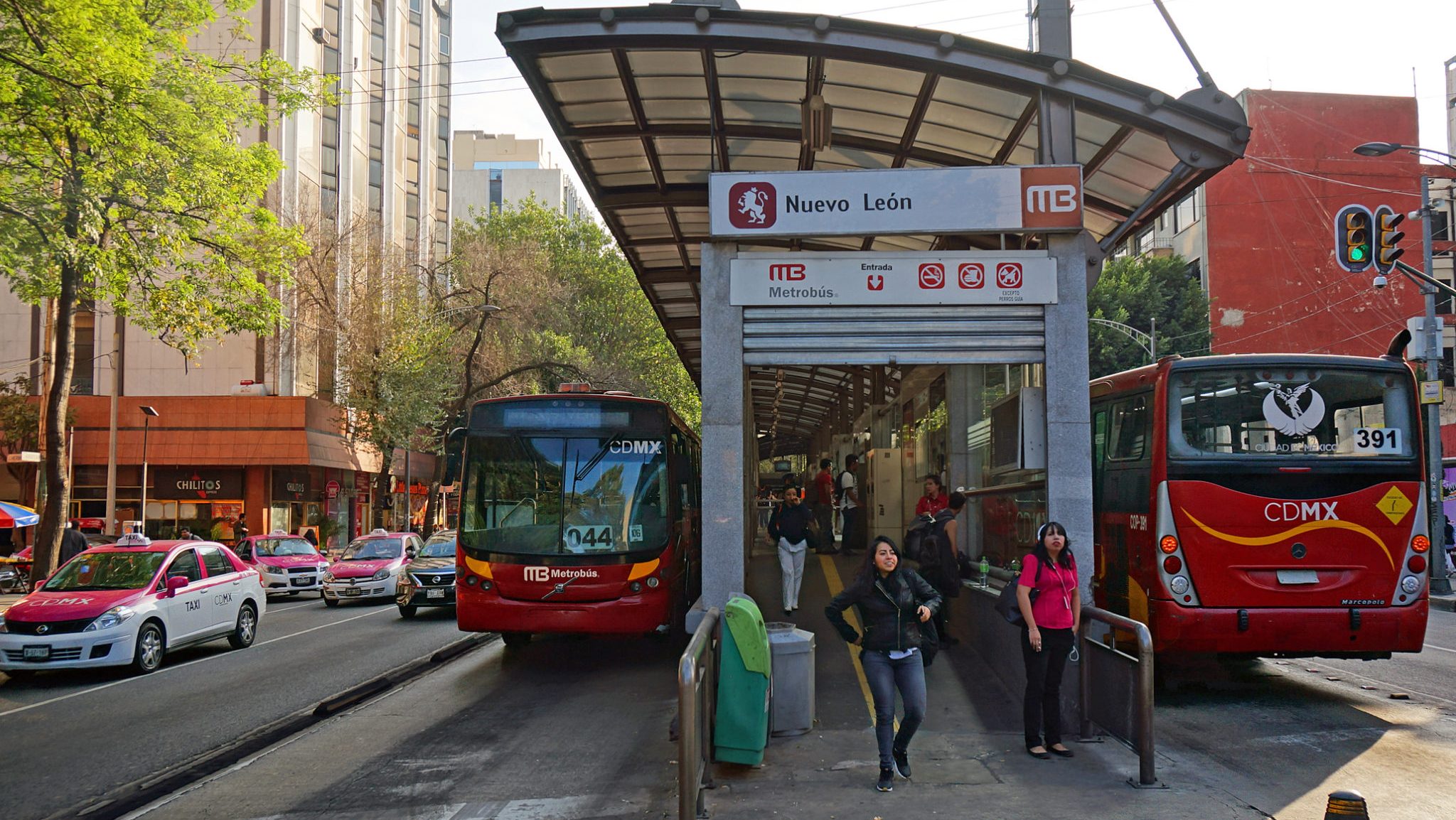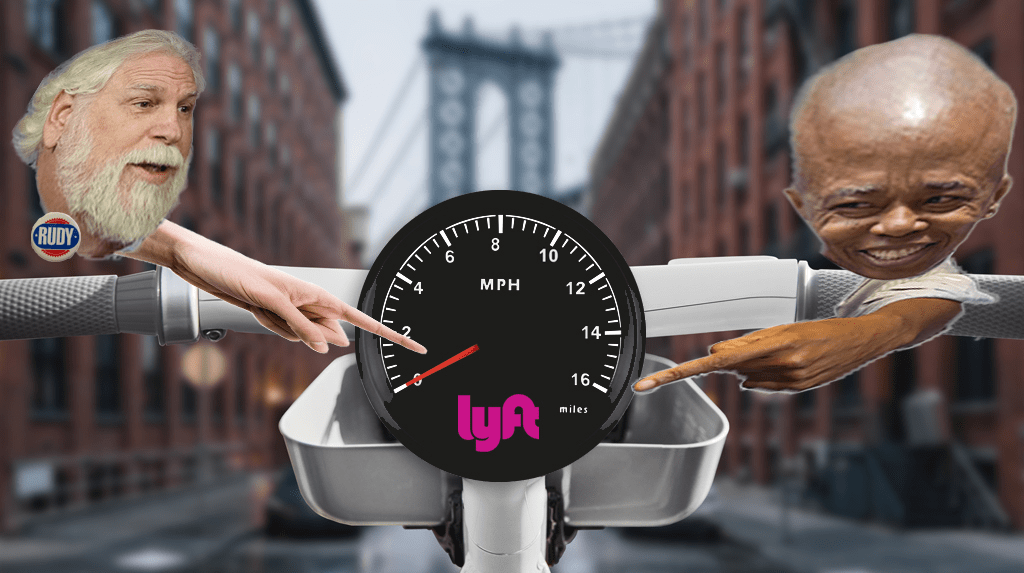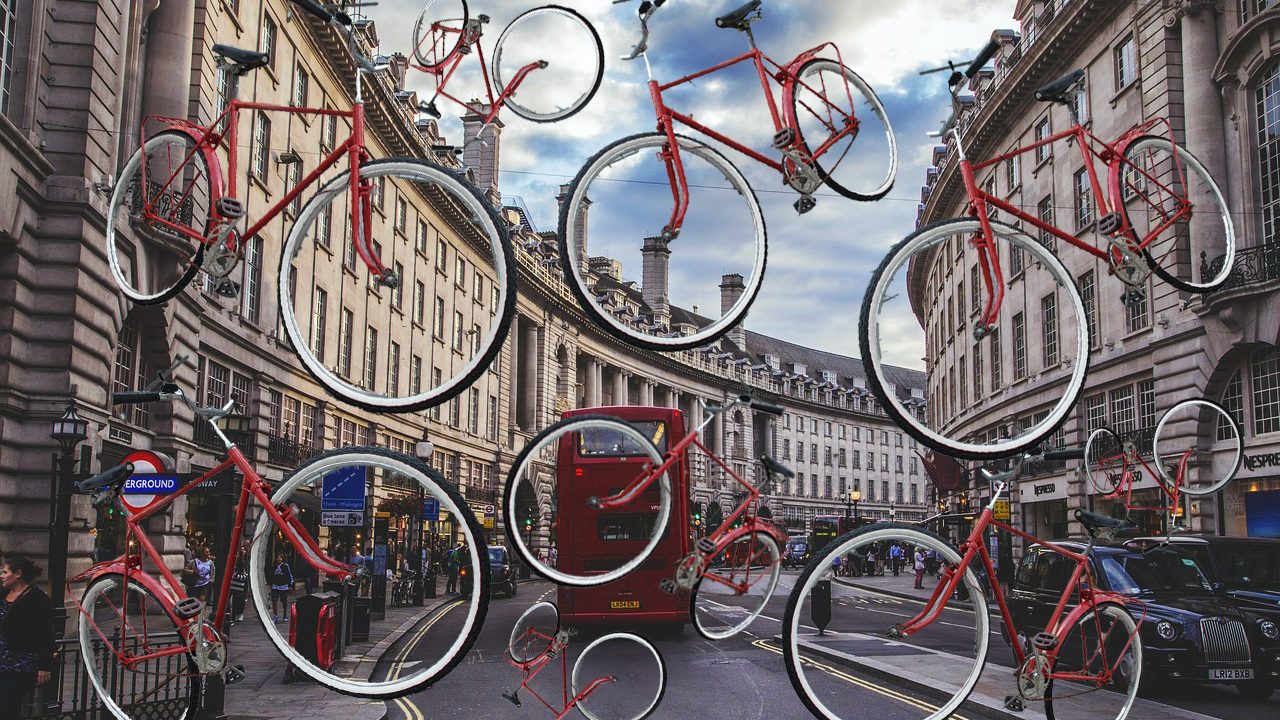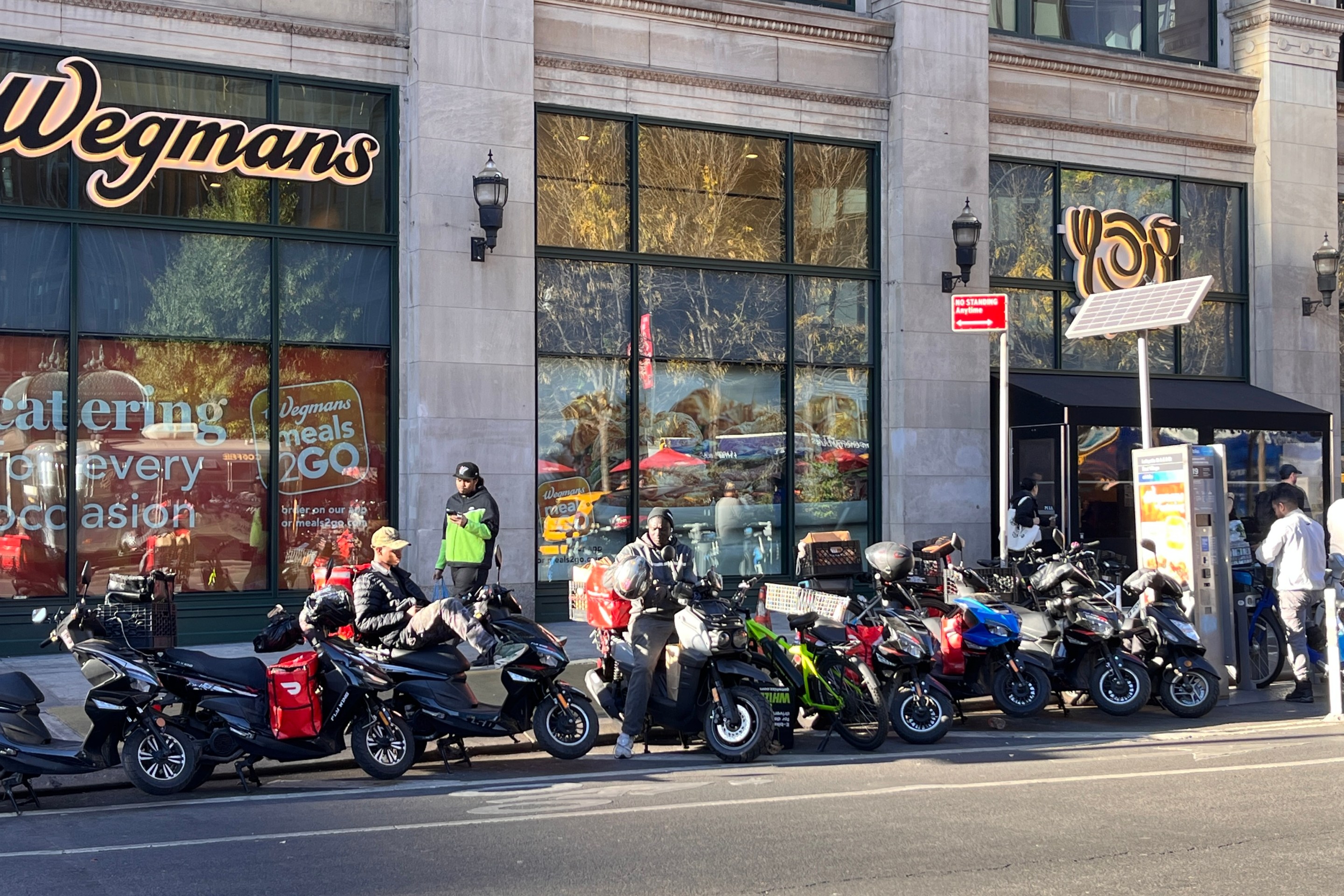A City Council proposal to exempt yellow cab drivers from the coming congestion pricing tolls is the wrong way to help suffering cabbies buffeted by a collapsing medallion market and competition from Uber and Lyft, experts told Streetsblog.
Manhattan Council Member Ydanis Rodriguez and his Bronx colleague Fernando Cabrera said Tuesday that Gov. Cuomo should immediately rescind a congestion surcharge that cabbies have been collecting since February — plus exempt yellow taxi drivers from paying the congestion pricing cordon fee once it goes into effect in 2021.
The council members' press conference with cab drivers came two days after a blistering expose in the Times revealed the decades-long roots of the taxi medallion mortgage crisis and the city's role in feeding it.
Exempting taxis from congestion charge is a mistake. Wish @ydanis was here in Oslo listening to leading Stockholm researcher describe their congestion pricing; 80% of volume is created by 20% of users, i.e. heavy users of the road network, like taxis. @StreetsblogNYC #UFGC19
— Mike Lydon (@MikeLydon) May 22, 2019
“The proposed solution does not match the problem,” said Ben Fried, communications director at TransitCenter. “Those fees are not going to have an impact on the financial hardships facing taxi drivers, who were victimized during this asset bubble. Once the cordon toll kicks in, taxi drivers should benefit because they will be able to complete more fares in a given amount of time. This exemption could actually come back to bite taxi drivers.”
Congestion tolls on drivers entering Manhattan’s congested central business district are expected to raise $1 billion to fund the MTA's capital expenditures. Some limited carve outs have already been granted, but transportation experts and advocates warn that giving taxis one as well does nothing to solve their financial woes, and will only hurt already-struggling drivers even more by not eliminating congestion.
What @ydanis is saying is: Cab drivers are struggling, so I want to increase the time they spend sitting in traffic rather than delivering paying passengers. https://t.co/ObcJ3xqXBl
— JW Mason (@JWMason1) May 21, 2019
Traditional taxi drivers started charging $2.50 more per ride for all trips below 96th Street in February as part of a state effort to raise money for the beleaguered subway system (Uber and Lyft collect a $2.75 per ride surcharge, and shared pool rides collect a 75-cent fee). The extra charge is passed onto the passenger who gets into the cab, but the two pols and yellow taxi advocates say the extra fee is cutting into what drivers take home — since February, they claim their revenue has dropped 15 to 20 percent.
“Our taxi drivers, many of whom are immigrants, are suffering from already imposed congestion pricing that went into effect in February," he said. "The taxi industry is already doing their contribution. We have a moral obligation to call for an exemption on taxi drivers from congestion pricing."
Despite the cabbies' complaints that their revenue is down, trips made since February have actually gone up, according to the Taxi and Limousine Commission. There were 247,315 trips on the average day in February, 2019, when the surcharge kicked in. But by April, daily averages had risen slightly to 252,634. Those numbers are still far below daily averages in the days before competition from Uber, Lyft and other disrupters.
So the surcharge isn't the culprit claimed by Rodriguez and Cabrera, who, it should be noted, opposes congestion pricing overall and may be seeking a back door for larger toll exemptions for cabbies — what transportation expert Charles Komanoff calls the “mother of all carve outs.” Taxis of all kinds contribute mightily to traffic — with yellow taxis making up 20 percent of the vehicle miles traveled in Manhattan's Central Business District and Ubers, Lyfts and the like comprising another 27 percent, Komanoff has said. Congestion zone surcharges on yellow taxis and Ubers could generate $500 million or more per year, in addition to the $1 billion to be generated by cordon fees on cars and trucks, he added.
Without proposing an alternative revenue source to fill in for the yellow cab exemption, Rodriguez's proposal should be dead on arrival, said transportation expert, Bruce Schaller.
"It's political grandstanding unless you have an alternative revenue source you're willing to propose," said Schaller, who has long analyzed Uber and Lyft's impact on the city. "It's a non-starter. What he's saying is defund the MTA."
Komanoff argued back in January for a five-point plan to address congestion while taking into consideration taxi drivers' financial struggles — including calling on Albany to rescind its flat-fee congestion surcharges on for-hire vehicles until the full congestion pricing toll goes into effect. But exempting yellow taxis entirely from congestion pricing would be a huge mistake, he said.
“I agree with the injustice of charging yellow taxis before the cordon toll, but once we've done the cordon toll, yellows have to be surcharged along with Ubers and Lyfts," said Komanoff.
But Rodriguez — who told Streetsblog back in February when he ran for Public Advocate that his “top transportation priority will be to reduce the number of vehicles on our streets" — wasn’t biting at that either. He insisted that yellow taxis must be exempt from all tolls since they have already contributed their fair share to the cash-strapped MTA, and have already seen declining revenues since the surcharge kicked in this winter.
"We have a moral obligation to call for an exemption on the taxi drivers from the current surcharge as well as the one to come," Rodriguez said when asked by Streetsblog if he would support Komanoff's plan to rescind the surcharge only until congestion pricing goes into effect. "Our drivers, many of whom are immigrants, are suffering from the already imposed congestion pricing that went into effect in February."
Rodriguez's proposal to exempt yellow taxis from congestion pricing tolls is so far the only concrete idea being floated to help struggling taxi drivers in the wake of the Times's story. Other politicians have ordered up investigations: Mayor de Blasio, who ran the city as the taxi medallion crisis exploded with bankruptcies and suicides; and Attorney General Letitia James, who was public advocate during much the same period, are now saying they'll pursue remedies.
And Council Speaker Corey Johnson, who had shut down the committing overseeing the industry, announced he'd soon appoint members to a new task force to study it.
Just in: @NewYorkStateAG Letitia James is probing the NYC taxi industry following our investigation.
— Brian M. Rosenthal (@brianmrosenthal) May 20, 2019
Her statement: pic.twitter.com/8T0YGyKutR
